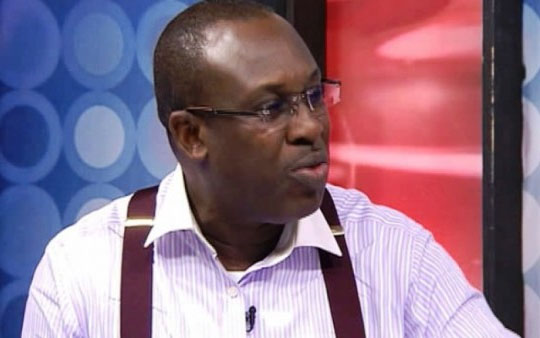Kofi Bentil
The Senior Vice President of Imani Africa, Kofi Bentil, has stated that Members of Parliament (MPs), like any other citizen, can be arrested and prosecuted if they commit crimes and should not hide behind parliamentary privileges to frustrate the work of the police.
He said the constitution gives only one person immunity from arrest and that is the President.
He made the disclosure yesterday, when the Inspector General of Police (IGP) met Civil Society Organisations (CSOs) at the Police Headquarters.
Expatiating his point he referred to “Article 117 which gives a narrow immunity for specific parliamentary function,” adding “that narrow immunity is being elevated to a blanket immunity for anything that a parliamentarian does.”
In attendance were representatives from Ghana Centre for Democratic Development (CDD-Ghana), Amnesty International, POS Foundation, Human Rights Advocacy Centre (HRAC), Commonwealth Human Rights Initiative (CHRI), Bureau of Public Safety, West Africa Network for Peace-building (WANEP) and twenty – two others.
Touching on the Ghana Police Service’s attempted arrest of the Member of Parliament (MP) for Madina, Francis-Xavier Kojo Sosu, Mr. Bentil said the police have powers of arrest and those powers are well prescribed in law.
“Parliamentary immunity was not invented by Ghana or Ghanaians. It is not our constitution that started that tradition. It came from the United Kingdom and has a long history. Basically it is about protecting Parliament from the sovereign king.
“In this country today we don’t have a king. The sovereign is the people. Parliamentary immunity is a very narrow immunity for the performance of parliamentary duties. It cannot be reasonably said that the person 24/7 days a week is always performing parliamentary duties, so that fundamental issue should be made clear,” he explained.
Mr. Bentil maintained that, if there is some sort of confusion about the interpretation of Article 117, the right place to go to is the Supreme Court for interpretation.
“We think respectfully that the police should be allowed to do their work and if anybody has a problem then they should go and seek interpretation at the Supreme Court.”
Continuing, he said “nobody is above the law and we think that we must cooperate with that process.”
He urged the police not to discriminate but work according to the law.
The Director General of the Public Affairs Directorate of the Ghana Police Service, ACP Kwesi Ofori said the closed-door dialogue with the CSOs centered on matters of security and how the two bodies can cooperate in curbing criminal activities in the country.
The two bodies, he added, have agreed to meet periodically to discuss issues of security and national interest.
By Linda Tenyah-Ayettey


